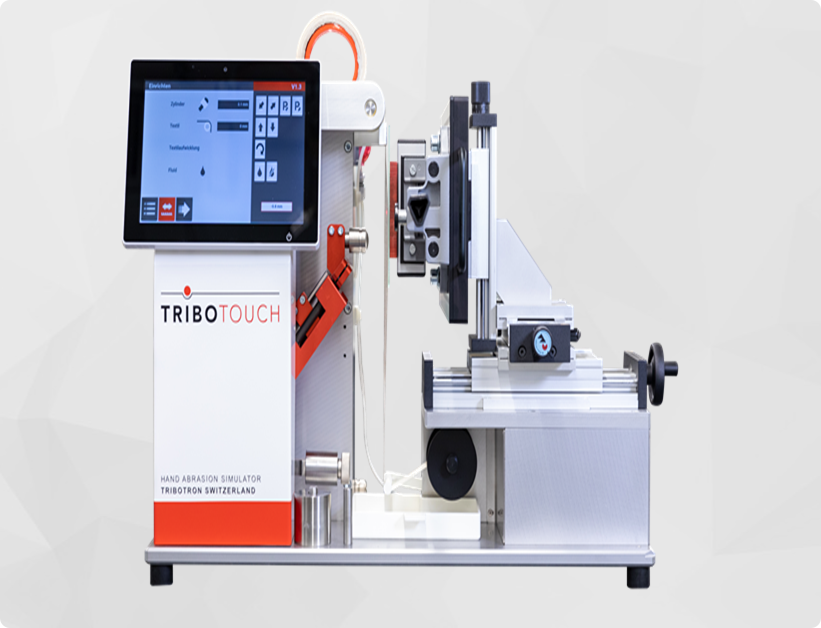Universal finger wear tester routine test
The universal finger wear tester can simulate the wear process of almost all products and fingers/skin (finger wear, nail scratches, tooth wear, sole wear, and industrial scratches, etc.), and can truly simulate liquid environments, such as human sweat, hand cream, sunscreen, detergent, toothpaste and other liquid media.
As a modern technology enterprise integrating R&D, manufacturing, sales, training, and service, our company is committed to delivering more testing instruments to the market, providing testing instruments for textiles, leather, combustion, automotive interior and exterior trims, material environmental climate aging, etc., and can accept non-standard customization. Before purchase, targeted tests can be carried out according to customer requirements to ensure that the purchased instruments are suitable.
Test principle:
Through a test head, a certain amount of pressure is applied, and a standard test cloth is carried to automatically circulate friction on the surface/coating of various materials at the angle specified by the standard. The test conditions can be customized, including tests under dry and liquid conditions (sweat, lotion).
Applicable standards:
IEC 68-2-70, DIN EN 60068-2-70, BMW GS 97034/GS 97045, Daimler DBL 7384, Ford WSS-M2P188-A1, EWIMA Specification, Sony Ericsson 45/152 41-FEA 202 8139 Uen, VW TL 226, DIN 53160-2:2001

Main parameters:
1. Load: 1, 5, 10N (20N optional)
2. Friction stroke: 1-40mm
3. Number of tests: 1-1 million times
4. Test fluid supply: automatic circulation
5. Test fabric supply: automatic circulation
6. Power supply: 110V/230V
Conventional test:
1. Nail scratch test: simulates the friction and scratches between human nails and material surfaces (such as printing and coating);
2. Nail scratch test "for the automotive industry": simulates industrial scratches according to various test standards, used to evaluate coating quality;
3. Shoe wear test: detects the wear resistance of materials against soles according to various inspection standards;
4. Tooth simulation test: simulates the wear resistance of tooth materials according to test standards;

